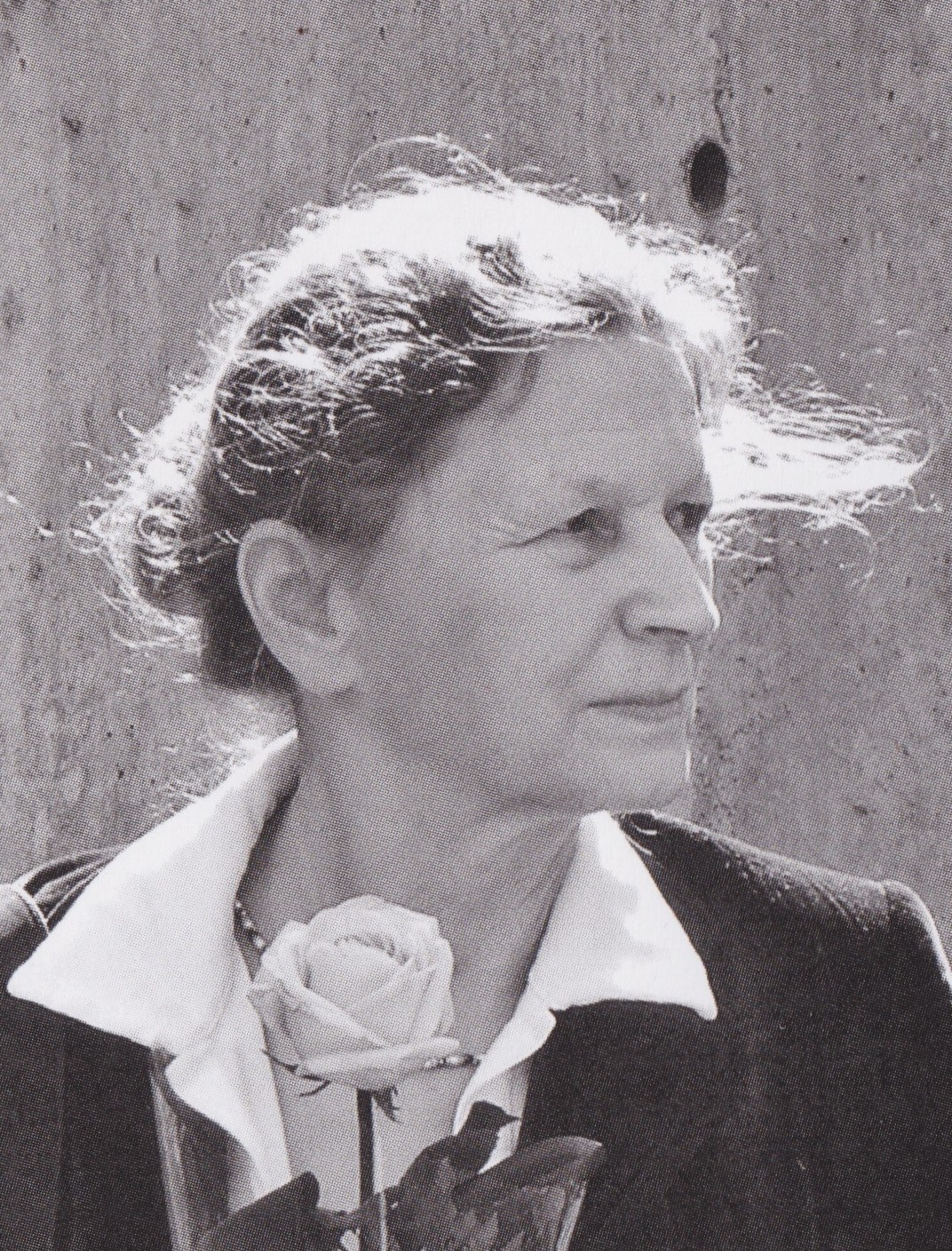Rosel Vadehra – Jonas , née Jonas
Rosel Vadehra - Jonas née Jonas
Born in 1940 in Dörnigheim am Main, graduate economist, lecturer in adult education
Daughter of Katharina (Käthe) Jonas (July 12, 1902 - January 25, 1977), Ravensbrück: August 31, 1944 - April 28, 1945
Member of the IRK since 1998

Rosel Vadehra – Jonas, Foto: Ambra Laurenzi
At the end of 1940 I was born in Dörnigheim am Main (Germany) as the second child of a working-class family.
Hitler and the NSDAP had been in power in Germany for more than 7 years and the war had raged for over a year. My parents, Käthe and Peter Jonas, belonged to the communist party. They were opponents of the National Socialist terror regime and therefore - like other relatives on my mother's side - were imprisoned for political reasons before I was born. (See also the biography of my mother Käthe Jonas.)
My father suffered from Bechterew's disease, an inflammatory rheumatic disease of the spine, and was therefore no longer able to work as a white binder (painter). He had been an early invalid for years when I was born. I was the 'child' in the family. My brother Friedel was almost 19 years older than me.
I was three years old when my mother was arrested again. She left the apartment with two men and had to leave me crying in the arms of my brother's young wife. She was taken to the Ravensbrück women's concentration camp. My mother survived the 'Hell of Ravensbrück', but suffered from the physical and psychological consequences of the concentration camp imprisonment for the rest of her life.
I attended secondary school in Hanau, then the one-year commercial college and then a language school in Frankfurt am Main, which I completed with the exams for business interpreters in English and French. This was followed by a two-year career as a secretary and translator - including one year in France. Then I went to the Hessenkolleg in Frankfurt, where I got my general university entrance qualification after two and a half years. Then I started studying economics at the Johann Wolfgang Goethe University in Frankfurt, which I completed with the diploma exam.
My parents tried to give me a good education, which they had to do without in their day due to the financial situation of their parents. They supported me as much as possible. I received grants from public funds for attending the Hessenkolleg and for studying. After graduation, I worked as a teacher in adult education.
Through my mother's work in the care center for victims of Nazi persecution in Hanau and her voluntary work in the municipal parliament in Dörnigheim, I got an insight into the social conditions of the post-war period as a child and I learned the very personal stories of many of those persecuted by the Nazi regime. Instead of going to official consultation hours, many people from Dörnigheim and neighboring communities came straight to our home with their concerns. The conversations with my mother took place in the presence of the family in the kitchen. Through these experiences, I became aware early on of the discrepancy between what I heard at home and the majority opinion outside the family and, last but not least, at school. While attending middle school, I never talked about my loved ones being persecuted or even imprisoned under the Nazi regime. There was no opportunity to do so either. In any case, the time of National Socialism was not dealt with in class. Through my mother I had contact with the Association of Persecuted Persons of the Nazi Regime (VVN) at an early age. As a child she took me to various events. Meetings of the Hanau district organization often took place in our apartment. As a teenager, I was able to make myself useful through my language skills. It was a matter of course for me that I became a member of the VVN in 1964, when it opened its ranks to relatives of the persecuted. I witnessed the establishment of the Ravensbrück camp community in West Germany up close.
My mother was now retired. She conducted a lively correspondence with former Ravensbrück prisoners and, together with them, compiled the addresses of other survivors of the camp. It was only after her death that I found out that during this activity in the 1960s, a case was opened against her for “establishing contact with the state”, which has since been discontinued.
After I left my job myself, I took an active part in the work of the VVN, which was now called the VVN / Bund der Antifaschisten (VVN / BdA), and I took part in several meetings of the Ravensbrück camp community. From 1990 to 1994 I was the national spokesperson for the VVN / BdA